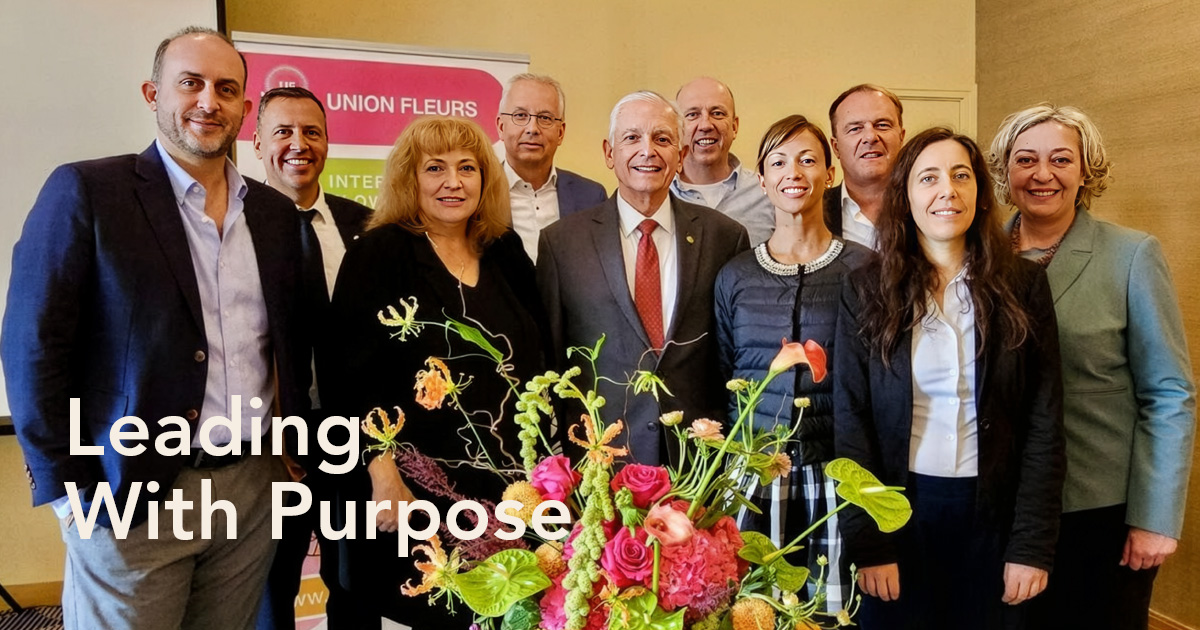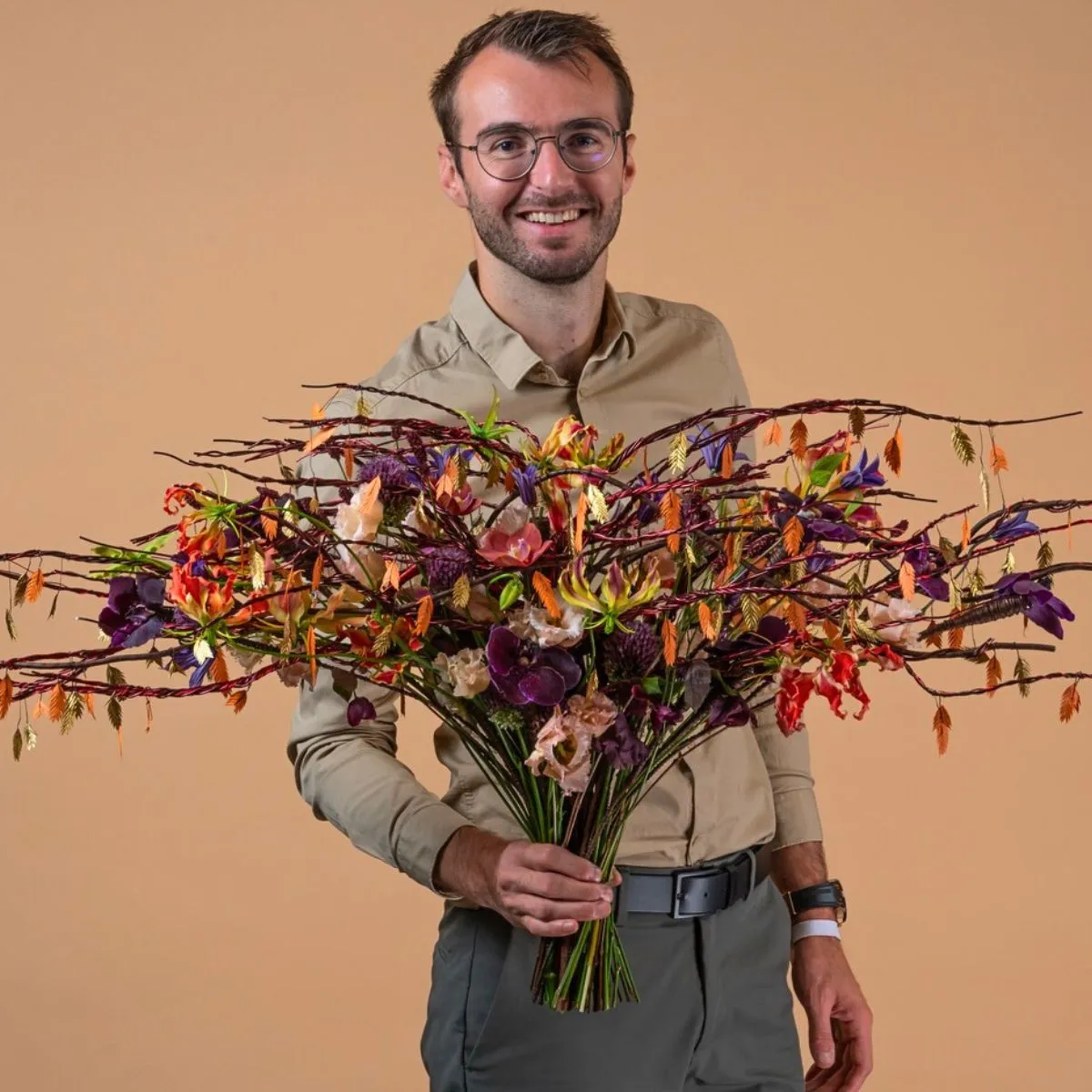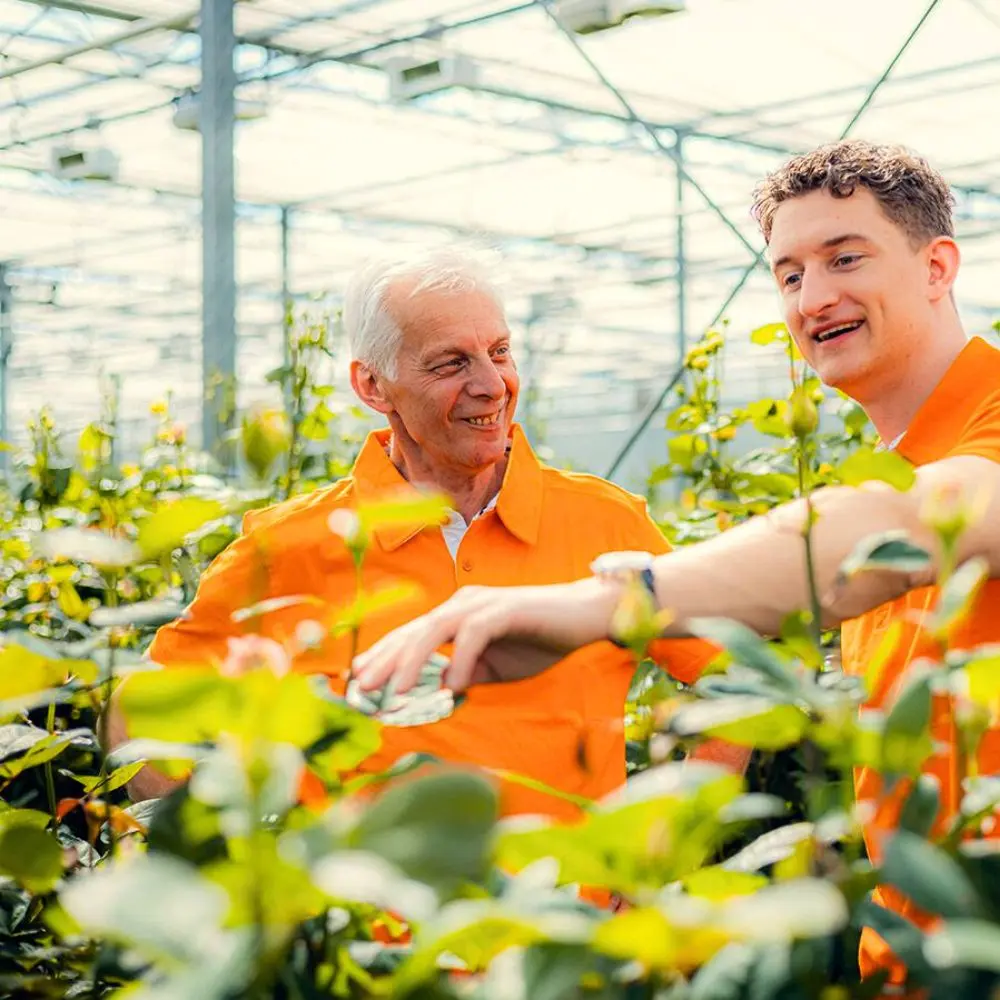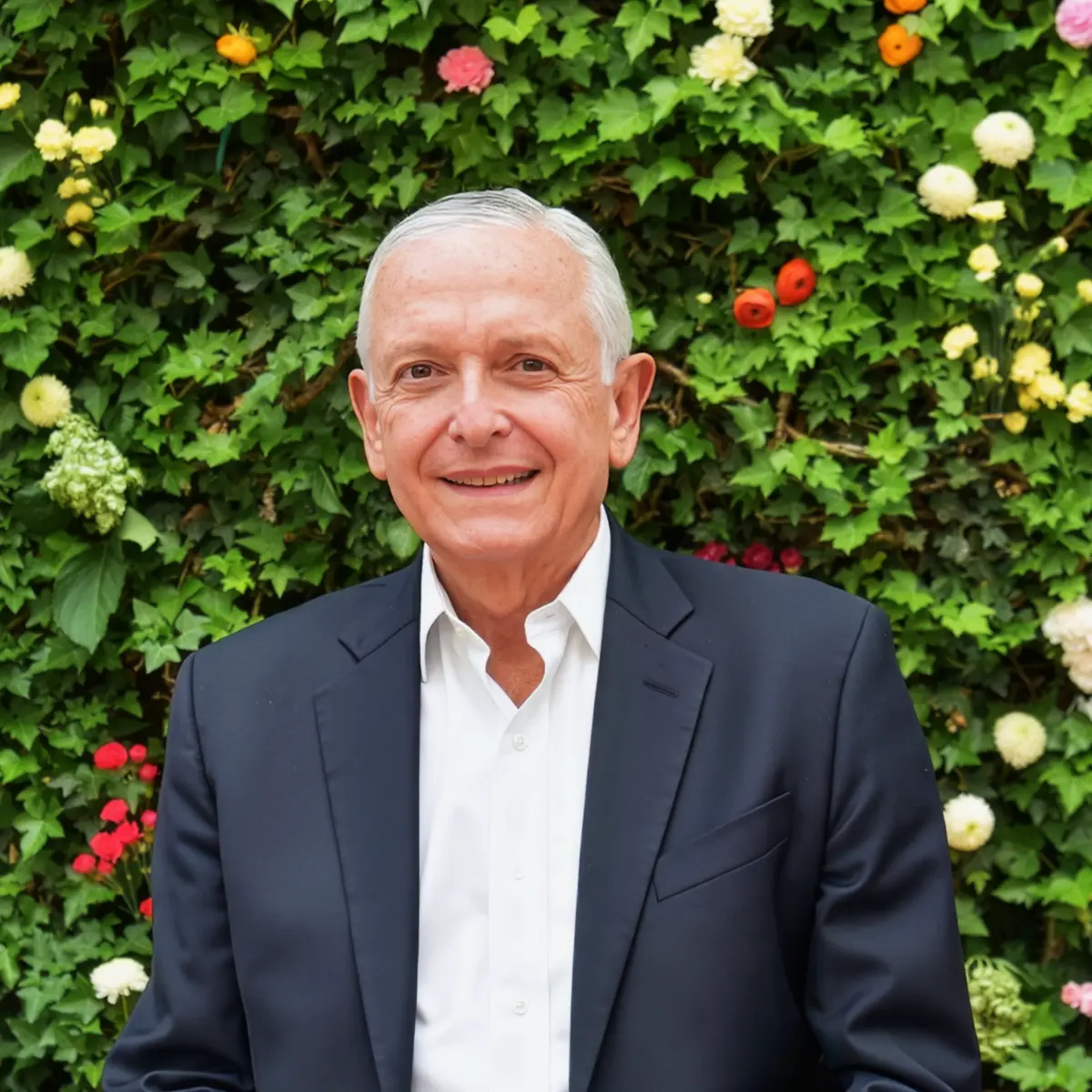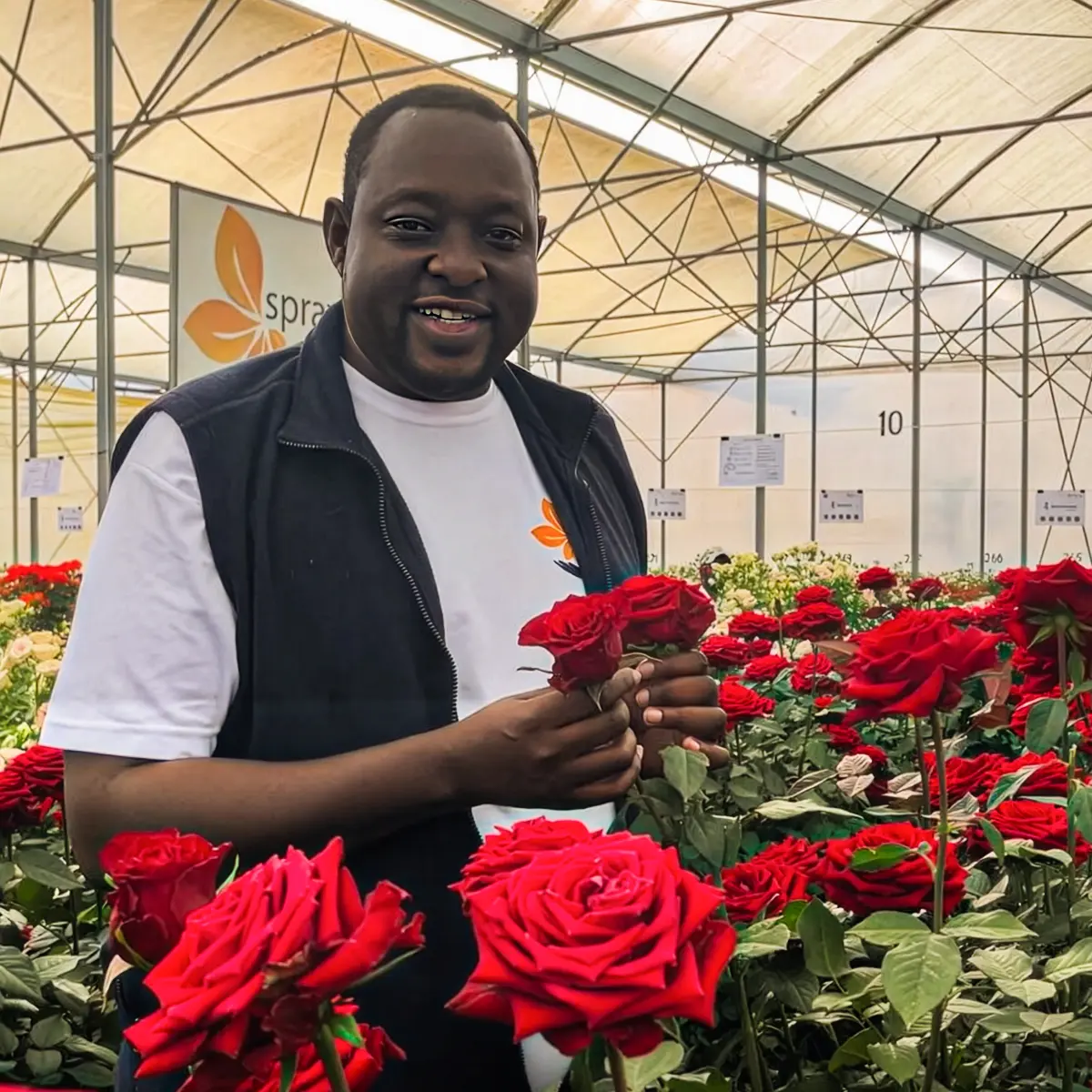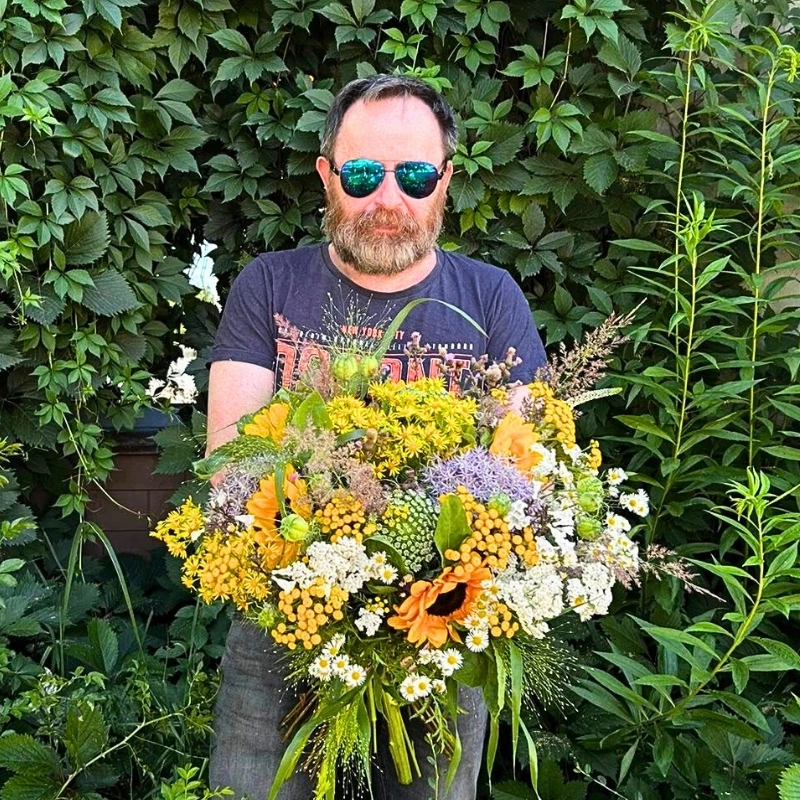For more than two decades, Augusto Solano has been a key figure in Colombia’s floral sector as President and CEO of Asocolflores, steering the industry through economic changes, global challenges, and significant transformations. Thanks to his leadership, the association has not only reinforced Colombia’s status as a prominent flower exporter but has also advocated for sustainability, social advancement, and innovation among generations of growers.
By managing fluctuations in global markets and initiating certification programs such as Florverde Sustainable Flowers, Augusto’s methodology embodies a combination of strategic vision and personal connection. His perspective extends beyond mere exports — it focuses on ensuring that the individuals behind each flower flourish, adapt, and take pride in their creations. In this week’s 10 Questions on Thursd, he offers his thoughts on the changing challenges within the industry, the influence of technology, his perspective on sustainability, and the straightforward philosophy that continues to inspire his work: better late than never.
Question 1
For those who don’t know you, who are you, and what do you do?
"My name is Augusto Solano, and I am the President and CEO of Asocolflores, the Association of Colombian Flower Exporters. My role is simple yet crucial — to facilitate the work of our members. I often describe it as managing a landing strip: my job is to make sure there are no obstacles so our members can take off.
At Asocolflores, we continually identify and remove the barriers that hinder our growers’ progress. A good example of this was during the pandemic. Despite flowers not being considered an essential product, we were able to keep farms operating without interruption. We developed and implemented our own biosecurity protocols — even before the government issued theirs — allowing the sector to continue working safely.
That’s the essence of what we do. We don’t interfere in commercial or competitive matters. Each member has their own strategies and secrets — and that healthy competition is what drives our industry's growth and innovation."
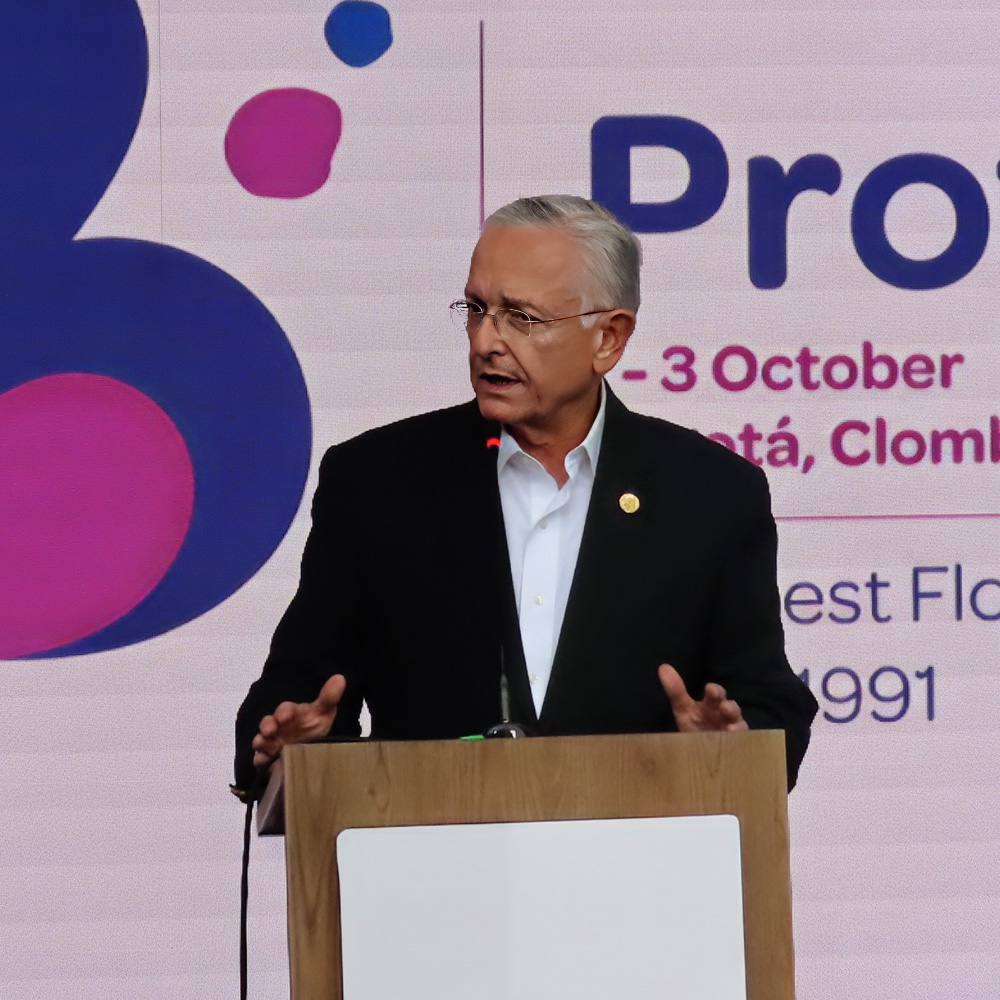
Question 2
What is so special about your job?
"This job is special for two main reasons. The first is its international scope. Our work is entirely global — everything we do connects to markets, challenges, and opportunities around the world. You need to have a broad perspective and understand how international dynamics affect the Colombian flower industry.
The second is the local impact. While our reach is global, the effect of what we do is deeply rooted in our communities. The social impact of floriculture in Colombia is enormous. We generate thousands of jobs, especially for women in rural areas, and that gives me a sense of pride and purpose. Knowing that our efforts contribute not only to the country’s economy but also to the well-being of so many families makes this work truly meaningful.”
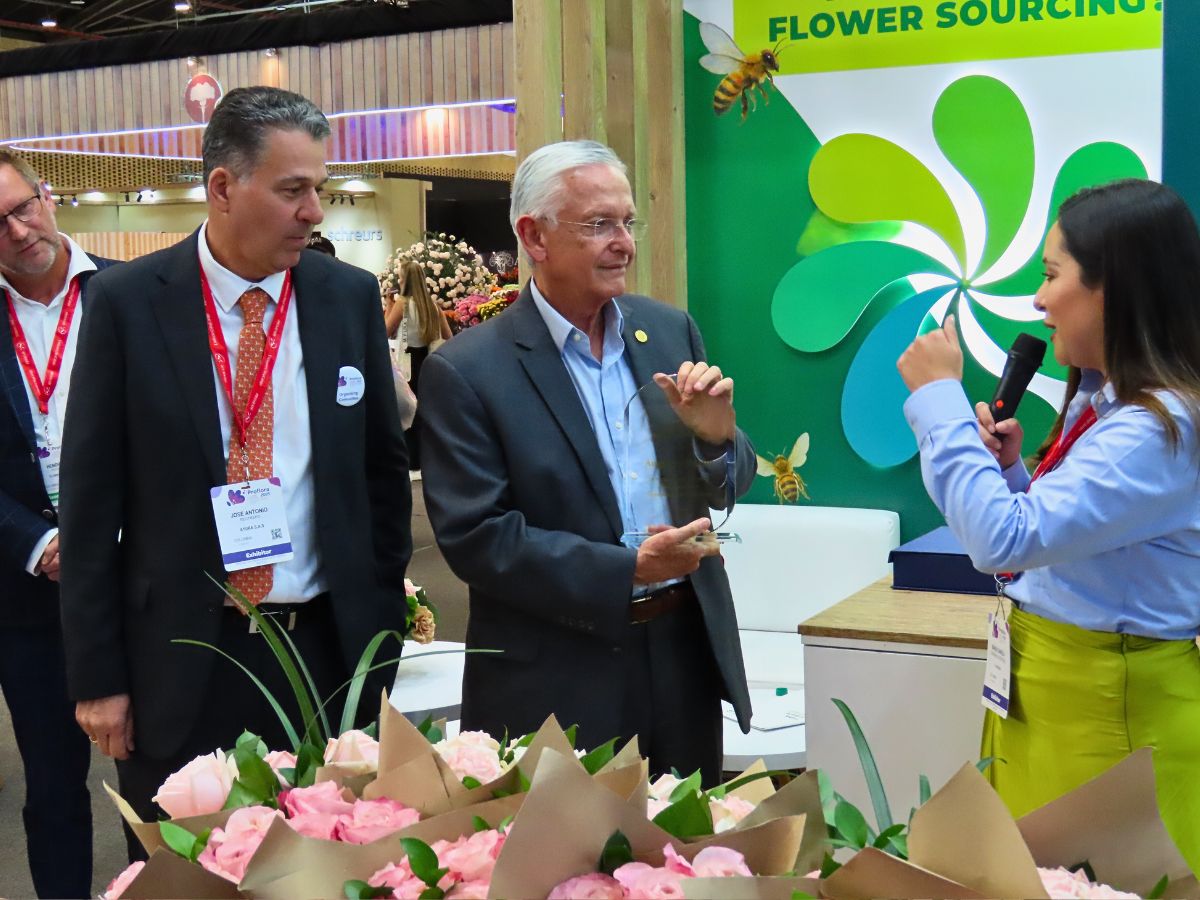
Question 3
Are there any specific challenges or obstacles you’ve faced at work, and how did you overcome them?
"My job is all about facing challenges — they never stop. I’ve been with Asocolflores for quite some years, and from the very beginning, there were major tests. I started in November 2000, and just three months later, right after Valentine’s, the largest U.S. flower trading company, USA Floral, went bankrupt, creating chaos in the market. That same year, the events of 9/11 brought additional disruption to logistics and exports.
One of the toughest challenges, however, came later — a decade-long appreciation of the Colombian peso. It wasn’t just deep; it was prolonged, and it hit the competitiveness of our exporters hard. Those were difficult years, but we managed to adapt, implement measures, and support our members to keep the industry afloat and resilient.
More recently, the pandemic brought another enormous test. Yet, it also revealed our strength as a sector. We managed to keep farms operating throughout the lockdowns, and surprisingly, that period became one of our most successful. As people stayed home, they bought more flowers than ever before. In 2021 and 2022, our exports grew by almost 20% each year. It was a reminder that even in adversity, there are opportunities when you stay proactive and united.”

Question 4
What are the threats in the industry, and if so, do you have any solutions for them?
"Right now, one of the toughest challenges we face is the exchange rate. It’s a complex issue because there’s no single factor driving it — it could be the difference in interest rates, the inflow of foreign capital, or simply the weakness of the U.S. dollar. It’s unpredictable, and that makes it very hard to plan for.
Another major challenge is the rising cost of labor. Over the past five years, wages have increased by nearly 50%, and since floriculture is a labor-intensive industry, salaries represent more than half of our total production costs. At the same time, there’s also a shortage of labor. Many young people are leaving rural areas for cities, making it harder to attract and retain workers. To address this, we’ve created an employment plan to promote floriculture as a valuable, future-oriented sector — a place where people can build a meaningful career.
Then there’s climate change, which affects us in multiple ways: higher production costs, new pest and disease pressures, and uncertainty about the long-term suitability of current growing altitudes. We’ve been proactive on sustainability for decades — thirty years ago, we introduced Florverde, which today is widely recognized for its environmental and social standards. But even with such initiatives, adapting to the changing climate remains difficult. We also face phytosanitary and security challenges, given the broader context in Colombia. All these factors keep us busy and constantly evolving. The key is to stay adaptable, responsible, and collaborative — both locally and globally — as we navigate this new landscape.”
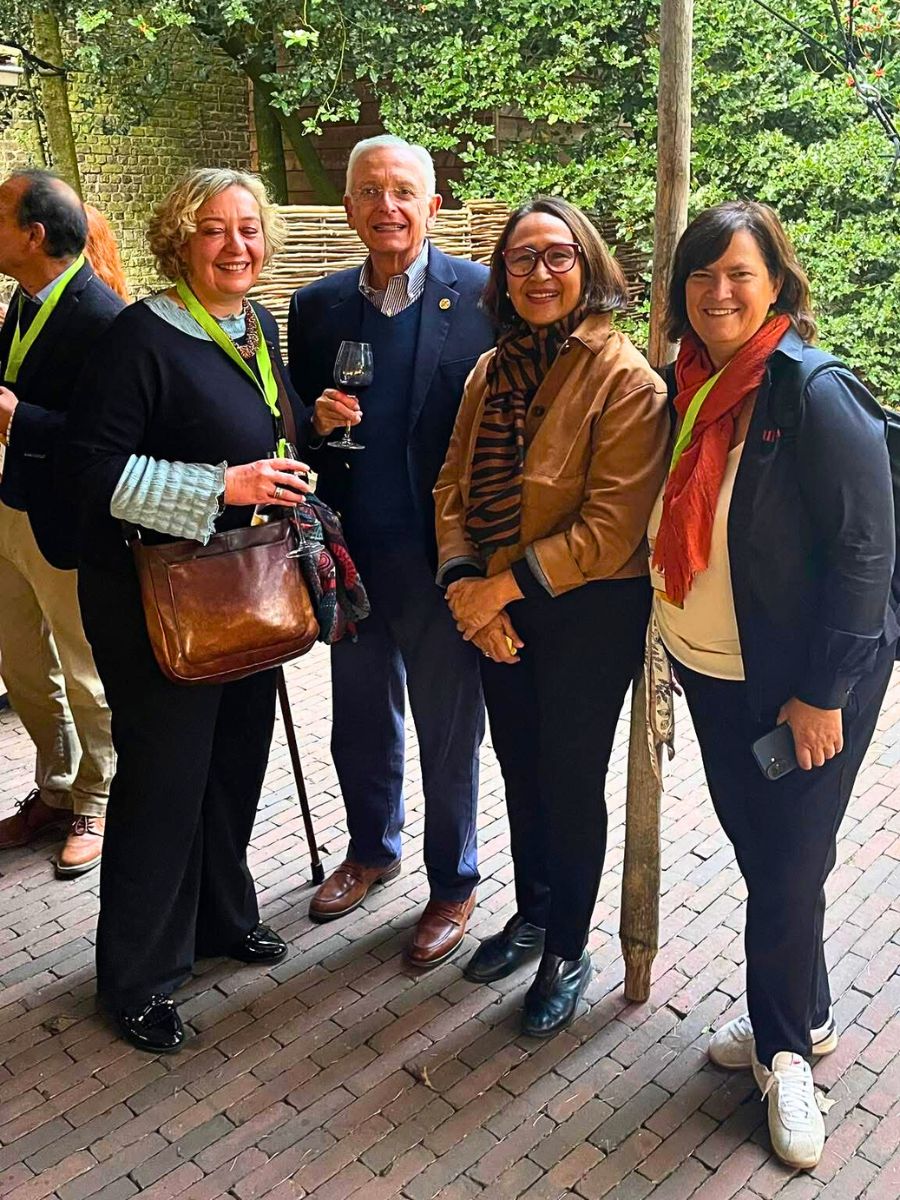
Question 5
How has technology, such as e-commerce platforms or digital marketing, affected your industry? What strategies have you employed to stay competitive?
"Technology has had a very positive impact on our industry. One of the main challenges we’ve long faced is figuring out how to sell flowers to the younger generations — people who have different habits, preferences, and ways of connecting. A few years ago, we sponsored a study with the American Floral Endowment (AFE) and the University of Minnesota to better understand these new consumer behaviors and how to reach them effectively. The findings were clear: to engage younger consumers, we must speak their language — through digital platforms, online campaigns, and social media.
E-commerce has made this possible. Today, many consumers can buy flowers online without visiting a physical store, which is critical for keeping the product accessible and relevant. The shift toward online sales continues to grow, and even some Colombian growers are now selling directly to consumers through e-commerce platforms. It’s an exciting transformation — one that ensures the flower industry continues to evolve and stay connected to new generations of buyers.”
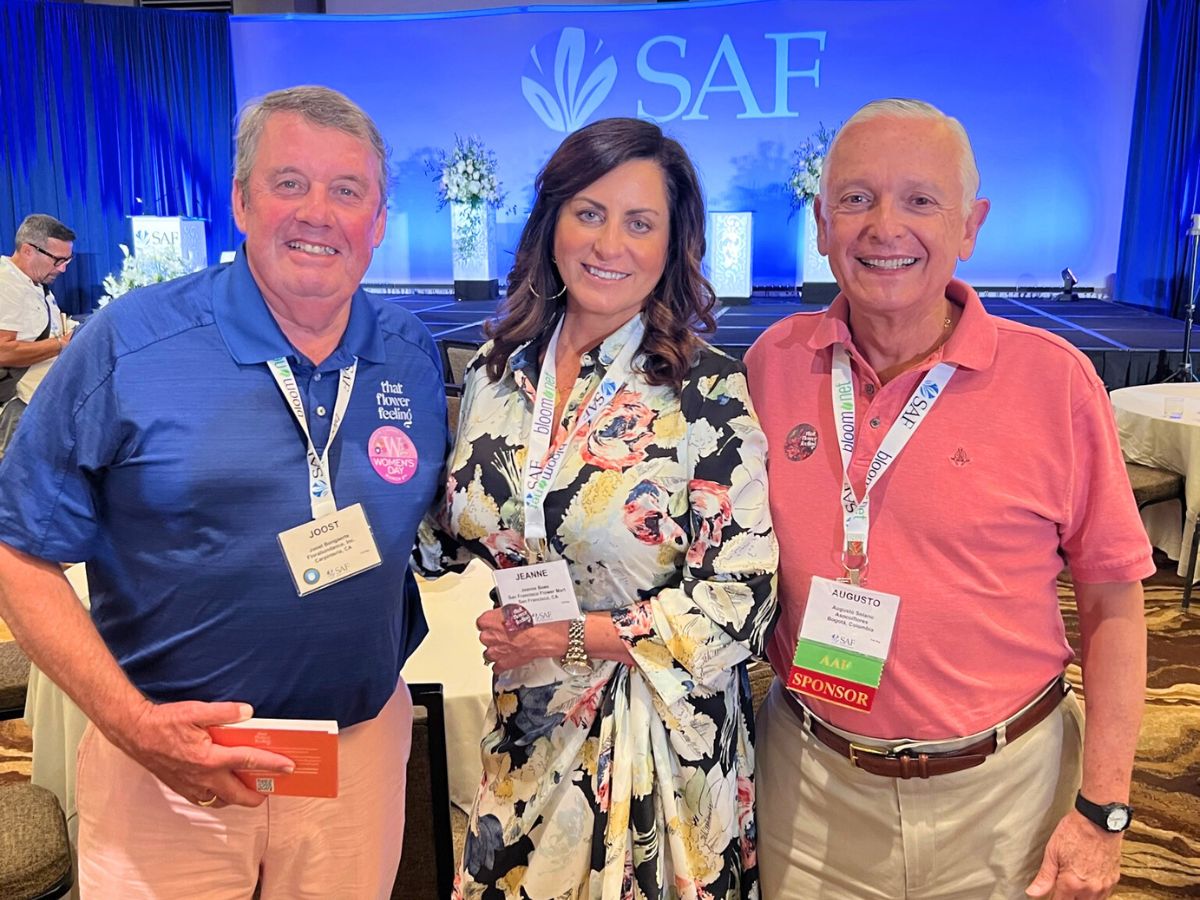
Question 6
What would be your favorite saying and why?
"A Spanish saying I really like: ‘Mejor tarde que nunca,’ which means ‘better late than never.’ It reminds me that some things are simply too important not to be done — even if they happen later than planned. The key is to act, to make the necessary changes or decisions, regardless of timing. What matters is that you do it.”
Question 7
How do you handle stress or difficult moments in your life?
"Well, just taking a breath and think and plan before acting."
Question 8
What has been the best (floral or non-floral) news for you lately, or of the last year?
"Well, last year, the good news is that we, as the flower industry in Colombia, we grew again. In 2023, growth was flat after the pandemic, but last year we grew by around 10%, which is significant for our sector. And the other good news is to learn that somehow we were able to manage the 10% tariff so far along the distribution."
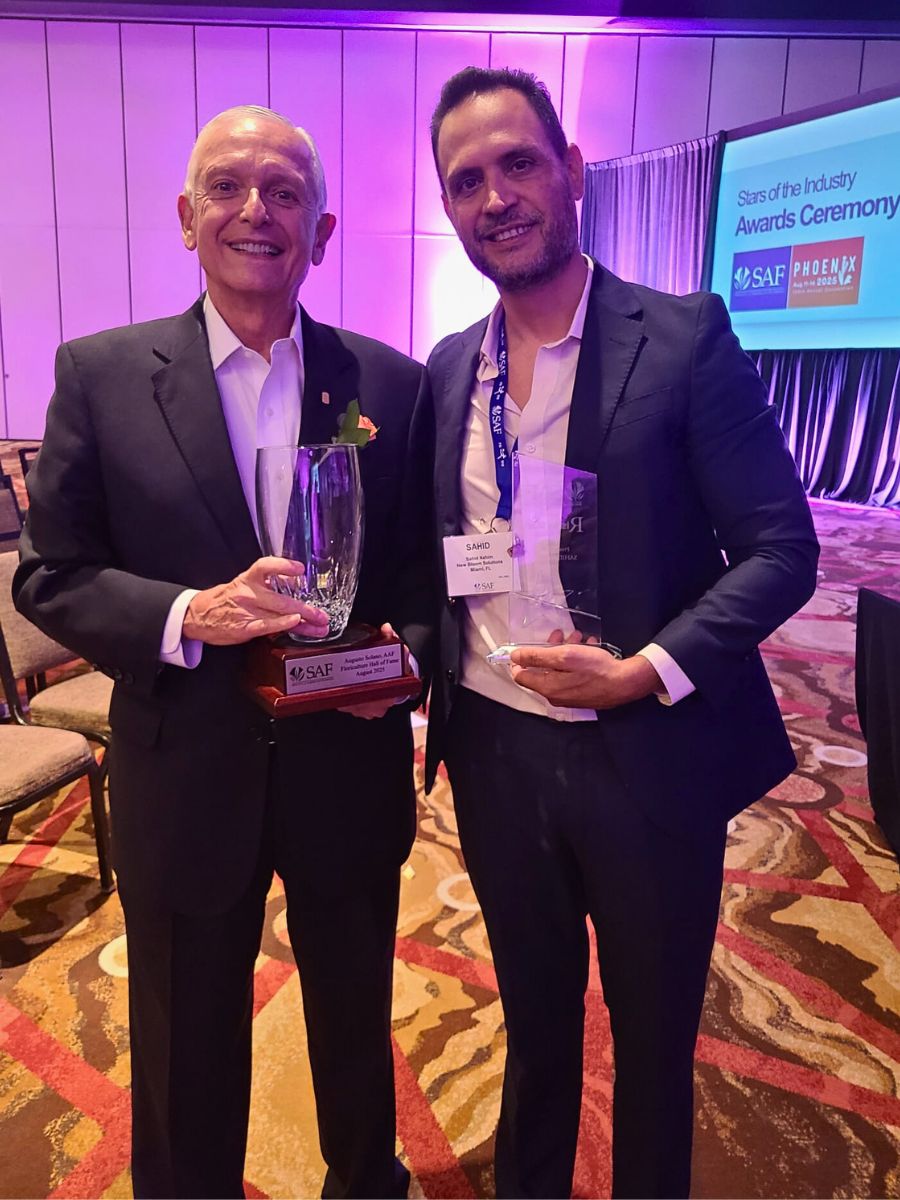
Question 9
Which is your favorite flower/plant, and why is it good for you?
"Why that's a very difficult question for me. I have all my members doing different things. So, to make the answer easy: I like a very nice mixed bouquet. That's very diplomatic!"
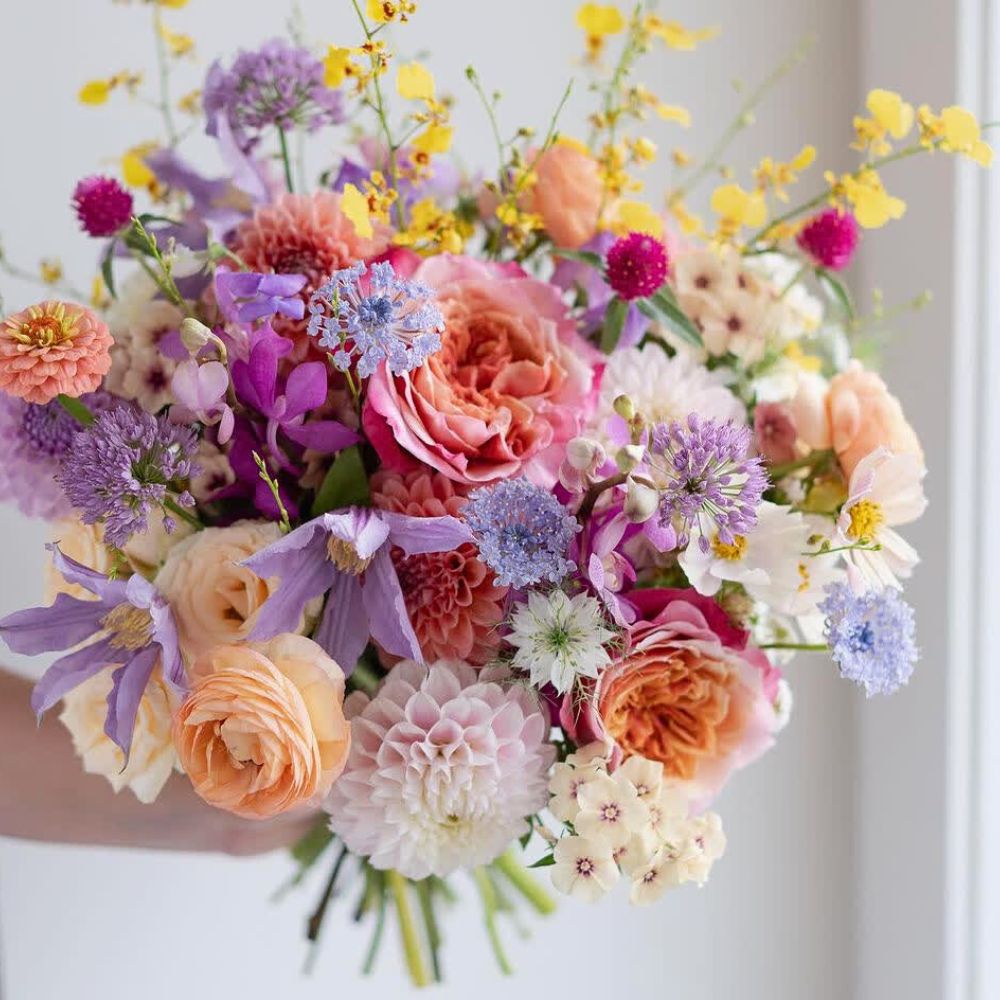
Question 10
What are you doing this weekend?
"We are now at Proflora 2025, so this weekend will be quite special. On Saturday the 4th of October, we’re hosting a show that, for the past two editions, we’ve opened to the public. But more than that, it’s really for the workers from the farms. Each farm receives a set number of tickets to share with their employees, and they come to see the displays. It’s incredibly emotional to watch them stand in front of their company’s booth, looking at the flowers they helped produce and grow. That moment of pride and connection is something truly powerful.
Then on Sunday, I’ll take some time to relax — maybe a round of golf, a sauna, a massage, and a nice lunch to unwind after the week.”
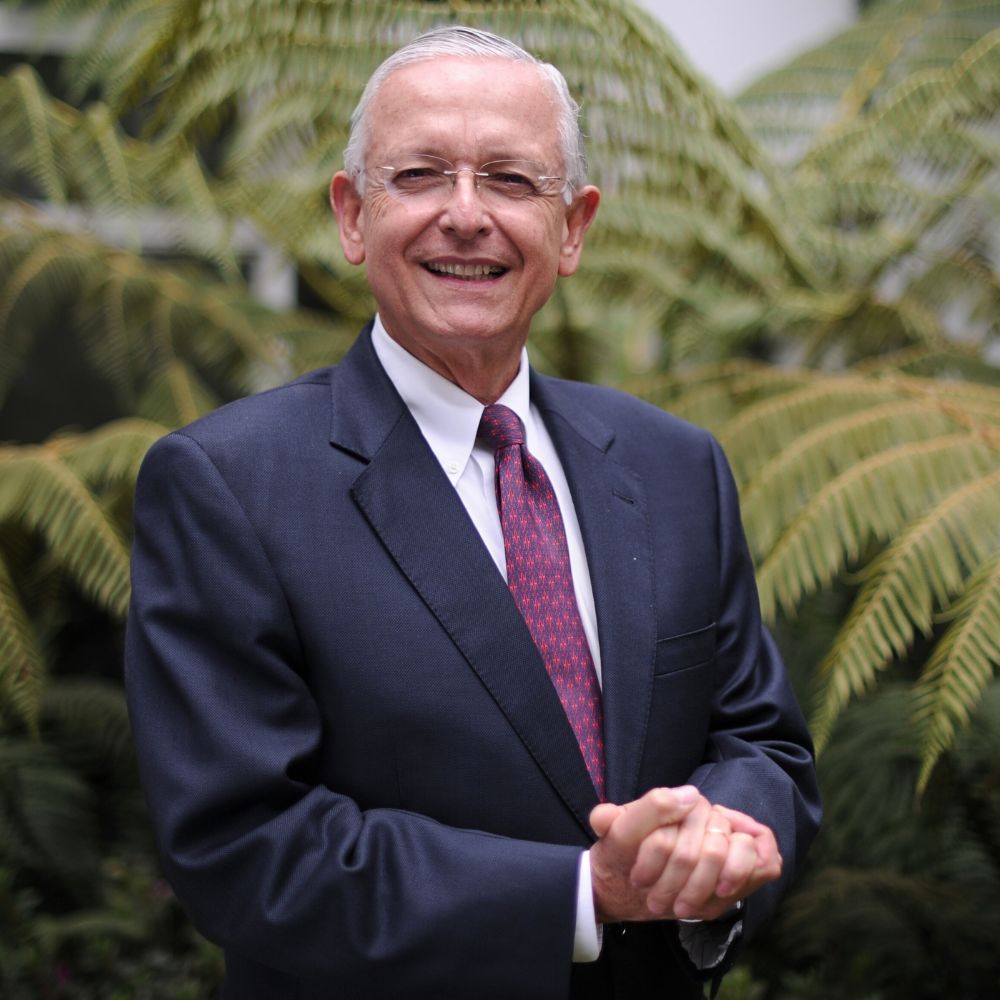
All pictures courtesy of Augusto Solano. The header image was taken at the Union Fleurs´ annual general meeting in London in September 2025.

